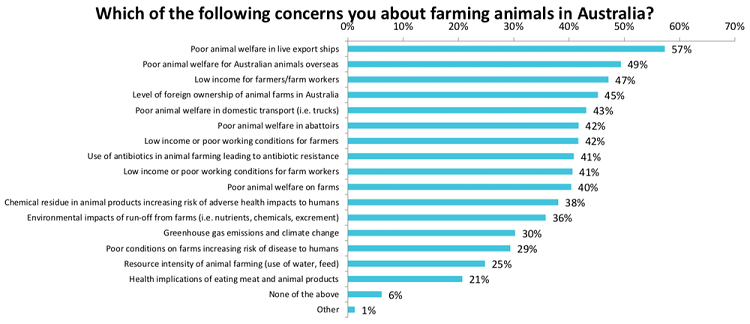Australian Cattle Starved, Beaten and Jumped On
The live export trade has again come under the spotlight in Australia after cattle have been starved in Indonesia and, separately, beaten, jumped on and left to die on farms in Western Australia.
Images released by the ABC this week show Australian cattle sold to the Indonesian government in 2018 starving. Other photos show the rotting corpses of Australian animals, some with bones jutting out of their emaciated carcasses.
In response, RSPCA Australia has repeated its call to the Australian Government to address a loophole in live export regulations that allows the export of animals for breeding and dairy production purposes with no protection in importing countries. The Exporter Supply Chain Assurance System (ESCAS), a system designed by Government to address community concern for the welfare of animals sent overseas, does not apply to the tens of thousands of breeding and dairy cattle exported every year.
In April this year, an ABC investigation revealed footage of starving, sick, dead and dying dairy cattle exported from Australia to Sri Lanka. A previous ABC investigation in 2012 revealed Australian dairy cattle shipped to Qatar with hundreds dying without adequate food, water and shelter in the desert conditions.
Cattle Welfare in Australia
Last week whistleblower footage was released depicting stockmen punching and kicking cattle on several farms in Western Australia. The footage appears to show a downed animal being jumped on, dogs being allowed to attack restrained animals, calves and cows being left to die slowly and painfully in yards, ear tags being ripped out of ears, incompetent euthanasia and dehorning without pain relief.
The footage, taken by Israeli workers, has been shown in Israel and resulted in a Knesset member writing to the Australian ambassador. “Israeli law prohibits animal abuse, and the Israeli public has a high awareness of animal welfare issues,” states the letter from Eli Avidar which also raises concern about the live export trade. “Photographs from the ships show exhausted, heavy breathing animals which are basking in their secretions and suffering from injuries and illness. The harm to animals is inherent on maritime journeys; there is no way to load masses of animals on ships under industrial conditions and move them from one end of the world to the other without them suffering.”
A report commissioned by Australia's Department of Agriculture and released earlier this year suggests the majority of Australians also care about farm animal welfare. The report included a survey of 1,521 people: 95 percent of respondents viewed farm animal welfare with concern, and 91 percent wanted reform to address this. The report Australia’s Shifting Mindset on Farm Animal Welfare by consultancy firm Futureye states that concerns around issues of animal welfare are spread relatively evenly across states and territories, and between capital cities, regional towns and rural areas. The level of concern is mainly determined by awareness and knowledge of specific animals and agricultural practices. Issues that receive more media coverage, such as live export and battery cage chickens, attract higher levels of concern.
The research also indicated that there is distrust of the industry and government when it comes to the welfare of farm animals. This distrust seemed to be fuelled by the perception that certain information may be kept hidden intentionally.

